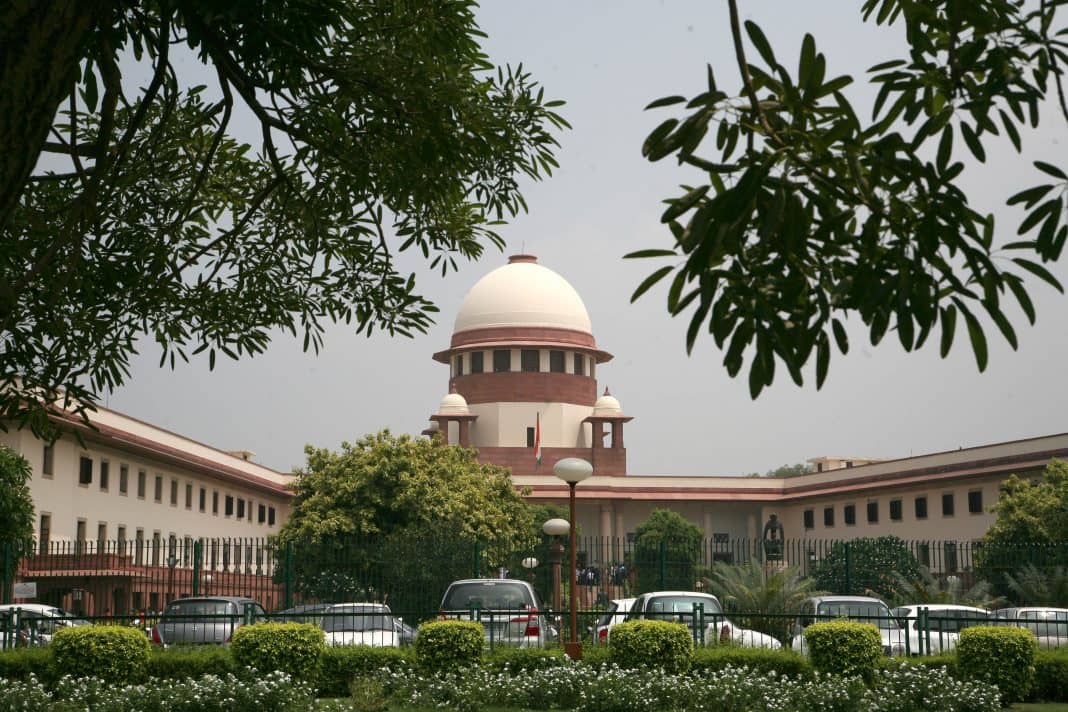New Delhi (ILNS): The Supreme Court, while upholding the order of a disciplinary Committee dismissing a police constable who was acquitted in a murder case, said: “Acquittal in a criminal trial does not conclude a disciplinary enquiry.”
The bench comprising Justices DY Chandrachud and Indira Banerjee passed the order in a case where a police constable had filed a petition under Article 226 of the Constitution to challenge his dismissal from service after a disciplinary enquiry. A Single Judge of the High Court, by a judgment dated February 1, 2018, dismissed the petition. The Division Bench reversed the judgment and concluded that there is no evidence in the disciplinary enquiry to sustain the finding that the respondent committed a murder while on leave from duty.
The Police Constable had also been acquitted independently in a Sessions trial on the charge of murder. The Division Bench granted the respondent reinstatement in service with no back wages for the 17 years that elapsed since his termination. The State thereafter filed an appeal before the Supreme Court.
On the question of judicial review over disciplinary matters, the bench observed that
“In exercising judicial review in disciplinary matters, there are two ends of the spectrum. The first embodies a rule of restraint. The second defines when interference is permissible. The rule of restraint constricts the ambit of judicial review. This is for a valid reason. The determination of whether a misconduct has been committed lies primarily within the domain of the disciplinary authority. The judge does not assume the mantle of the disciplinary authority. Nor does the judge wear the hat of an employer. Deference to a finding of fact by the disciplinary authority is a recognition of the idea that it is the employer who is responsible for the efficient conduct of their service. Disciplinary enquiries have to abide by the rules of natural justice. But they are not governed by strict rules of evidence which apply to judicial proceedings. The standard of proof is hence not the strict standard which governs a criminal trial, of proof beyond reasonable doubt, but a civil standard governed by a preponderance of probabilities. Within the rule of preponderance, there are varying approaches based on context and subject. The first end of the spectrum is founded on deference and autonomy – deference to the position of the disciplinary authority as a factfinding authority and autonomy of the employer in maintaining discipline and efficiency of the service. At the other end of the spectrum is the principle that the court has the jurisdiction to interfere when the findings in the enquiry are based on no evidence or when they suffer from perversity. A failure to consider vital evidence is an incident of what the law regards as a perversedetermination of fact. Proportionality is an entrenched feature of our jurisprudence. Service jurisprudence has recognized it for long years in allowing for the authority of the court to interfere when the finding or the penalty are disproportionate to the weight of the evidence or misconduct. Judicial craft lies in maintaining a steady sail between the banks of these two shores which have been termed as the two ends of the spectrum. Judges do not rest with a mere recitation of the hands-off mantra when they exercise judicial review. To determine whether the finding in a disciplinary enquiry is based on some evidence an initial or threshold level of scrutiny is undertaken. That is to satisfy the conscience of the court that there is some evidence to support the charge of misconduct and to guard against perversity. But this does not allow the court to re-appreciate evidentiary findings in a disciplinary enquiry or to substitute a view which appears to the judge to be more appropriate. To do so would offend the first principle which has been outlined above. The ultimate guide is the exercise of robust common sense without which the judges’ craft is in vain.”
The bench, further commenting on the effect of an acquittal on disciplinary proceedings, said that in Inspector General of Police v. S. Samuthiram, a two-Judge Bench of the Supreme Court held that unless the accused has an “honourable acquittal” in their criminal trial, as opposed to an acquittal due to witnesses turning hostile or for technical reasons, the acquittal shall not affect the decision in the disciplinary proceedings and lead to automatic reinstatement.”
The bench further observed: “In the present case, the respondent was acquitted of the charge of murder. The circumstances in which the trial led to an acquittal have been elucidated in detail above. The verdict of the criminal trial did not conclude the disciplinary enquiry. The disciplinary enquiry was not governed by proof beyond reasonable doubt or by the rules of evidence which governed the criminal trial. True, even on the more relaxed standard which governs a disciplinary enquiry, evidence of the involvement of the respondent in a conspiracy involving the death of Bhanwar Singh would be difficult to prove. But there are, as we have seen earlier, circumstances emerging from the record of the disciplinary proceedings which bring legitimacy to the contention of the State that to reinstate such an employee back in service will erode the credibility of and public confidence in the image of the police force.”
Also Read: ‘Two leaves’ symbol scam: Accused Covid positive, interim bail extended by Supreme Court
Hence the bench set aside the order of reinstatement as held by the Division Bench of the Rajasthan High Court.
-India Legal Bureau



I have been looking for this U S Constitution article since long time. Thanks author.